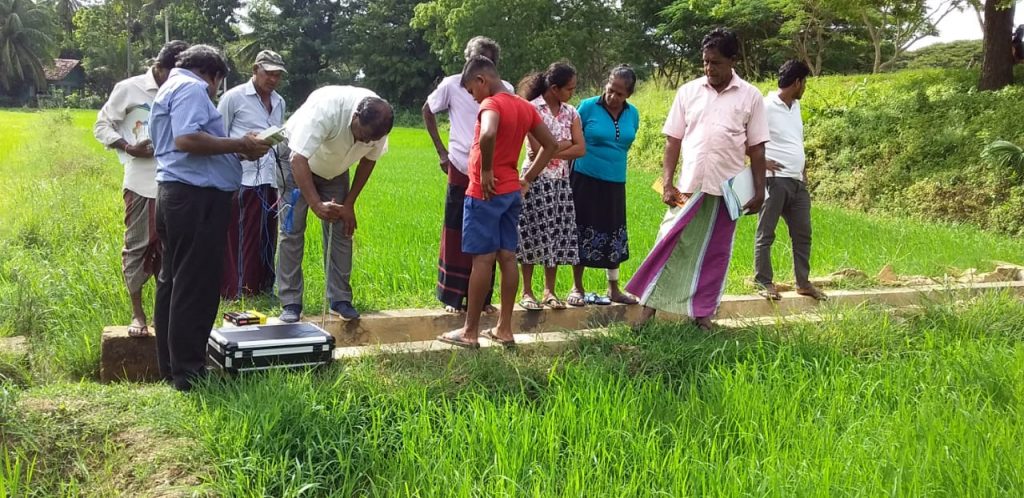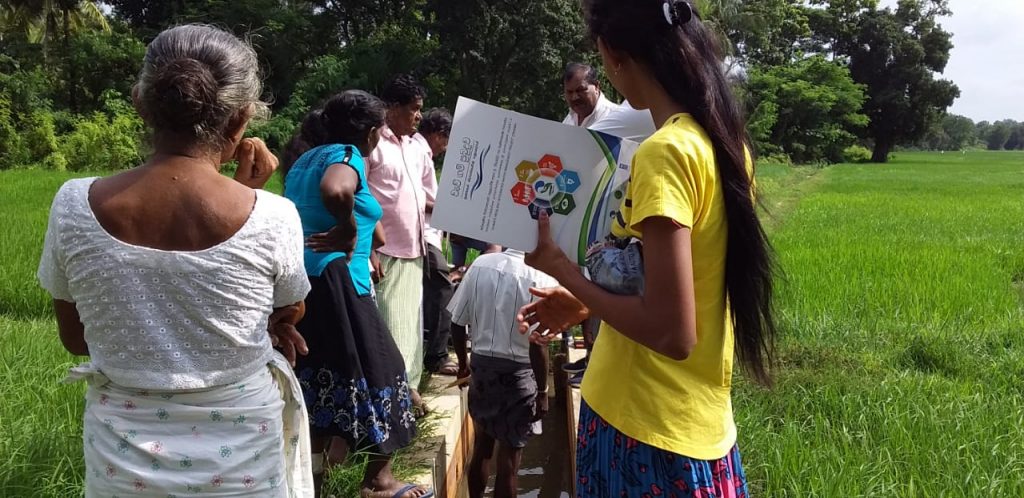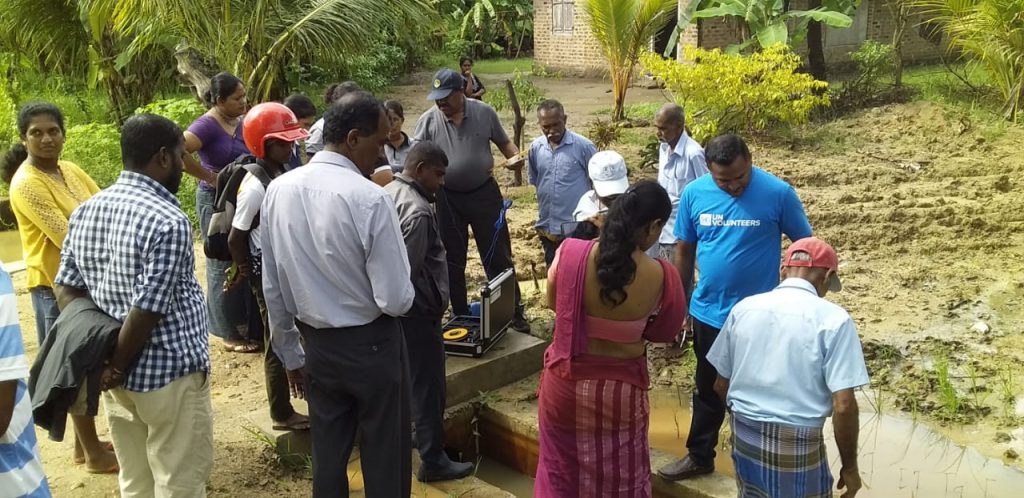Adapting to climate change through water management
Farmers in the dry zone experience extreme weather conditions, especially droughts due to the effects of climate change. Water collected in the tanks during the short rainy season is the determinant factor of the type and extent of crop cultivation during the dry season. This is very important especially in paddy cultivation since it requires ample water. In this scenario, water management is a vital element in climate change adaptation.
In the usual practice, water collected in the tank is released by the “Water Controller (Jala Palaka)” of the respective Farmer Organization to the farmer fields when required. In this exercise, water released without calculating the actual requirement, and a considerable amount of water is being wasted.
Climate Resilience Integrated Water Management Project (CRIWMP) conducted two trainings on water management, in December 2019. Water Controllers, leaders of Famer Organizations and corresponding government officers, in Mamunuwa (Polpithigama) and Anguruwella (Ehetuwewa) cascades in Kurunegala were trained on the equitable allocation of water. This decides after few calculations, considering factors such as water holding capacity of the tank, extent and types of crops cultivated. Now farmers are able to carry out downstream mapping with the demarcation of distribution points and develop water releasing schedule for each tank, with the support of respective government officers.
Farmers in the two cascades are planning to practice this form next Yala season in 2020. This will allow them to use every drop of water collected to the tank, efficiently and effectively with minimum wastage. This will certainly help to increase the extent of cultivation; result in increased cropping intensity; which leads to increase food security and reduce poverty in the long run.
About the Climate Resilient Integrated Water Management Project (CRIWMP)
The Sri Lanka Red Cross Society mobilizes farmer communities in the dry zone to adopt climate-resilient agricultural activities. The Climate Resilient Integrated Water Management Project is a 7-year project aimed at strengthening the resilience of Smallholder Farmers in Sri Lanka’s Dry Zone to climate variability and extreme events.
The Project is financed through a grant received from Green Climate Fund (GCF) while the Government of Sri Lanka has committed to co-finance the activities identified under the Project as well. Ministry of Mahaweli Development and Environment, is an implementing partner for this project, with the technical assistance of the United Nations Development Program (UNDP) and work with a number of government institutions to deliver the project activities and outputs while measuring its’ impact.


